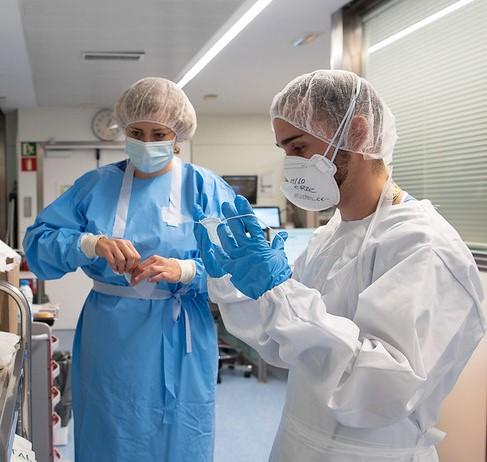In its weekly update on the pandemic, the World Health Organization (WHO) said a global decline in cases seen since the end of March has stabilized, with four regions now reporting rising cases, up from two the previous 2 weeks.
Cases were up sharply—68% from the week before—in the Eastern Mediterranean region, with the highest case totals from Bahrain, Saudi Arabia, and Iran. The other region reporting a fresh rise is the Western Pacific, where cases were up 14%, with the highest numbers reported in China, Australia, and Japan.
The Americas region reported a 26% increase, and the African region reported a 6% rise.
Deaths at the global level, however, continued to decline, except in the African region, where fatalities rose 48% over the previous week.
Regarding the more-transmissible subvariants, the WHO said it is monitoring BA.4, BA.5, and BA.2.12.1 under the Omicron variant-of-concern umbrella. The prevalence of all three has increased in the countries where they were first detected. So far, BA.4 has been identified in 20 countries, BA.5 in 19, and BA.2.12.1 in 38.
Globally, BA.4 and BA.5 make up 0.5% and 0.4% of circulating variants, respectively, and BA.2.12.1 makes up 10% of BA.2 lineages as of late April.
World ill-prepared for next threat, experts say
In another new global development, the world isn't much better prepared to address a new global health threat than it was when SARS-CoV-2 emerged, according to experts.
An independent panel voiced those concerns in a 1-year follow-up report today. The group had originally submitted an extensive review on the world's COVID-19 response, along with a list of recommendations, in May 2021 to the World Health Assembly.
The experts said there have been notable efforts to protect people against the current threat. But Ellen Johnson Sirleaf, who cochairs the Independent Panel for Pandemic Preparedness & Response with Helen Clark, said, "these remain slow, fragmented, too focused on bureaucratic processes and not enough on results."
Sirleaf is Liberia's former president, and Clark is New Zealand's former prime minister.
The committee recognized some progress, such as a recommendation that member states increase their base funding to the WHO, G20 plans for a new pandemic fund hosted by the World Bank, proposed changes to the International Health Regulations to speed up pandemic threat reporting, and an international partnership that delivered 1.5 billion vaccine doses and other pandemic tools.













